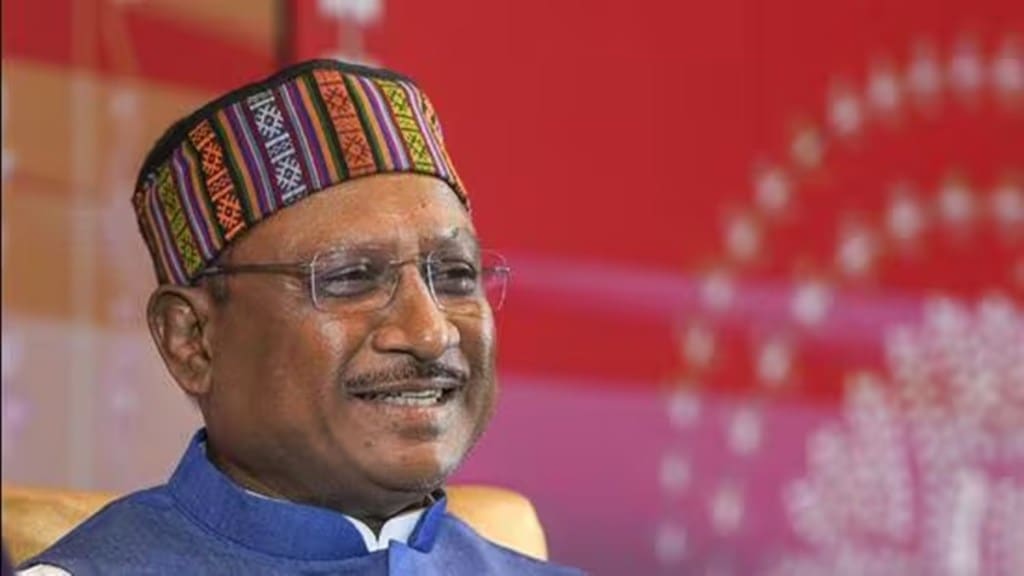A year after assuming office, Chhattisgarh Chief Minister Vishnu Deo Sai has unveiled a new industrial policy aimed at attracting investments in various sectors such as semiconductors, information technology, electronics, food processing, renewable energy, tourism and education. On Monday the state received investment proposals worth Rs 15,184 crore from leading industrialists after a meet here. Sai spoke to Financial Express’s Sandip Das on a range of issues from eliminating naxalism by 2026 to the potential of the state to emerge as an investment destination.
Q: What are the unique features of the state’s new industrial policy 2024-2030?
The policy has a potential for investment in sectors like agriculture, food processing, energy, mining, and manufacturing. Our policy provides tax, land, and electricity exemptions as well as single-window clearance for industries. It emphasises on setting up industries but also on employment generation It includes special subsidy and incentive packages for emerging sectors like artificial intelligence (AI), robotics, green hydrogen, data centers and semiconductors, streamlined approval processes without any hassles. The state is no longer just a mineral-rich state. It is gradually emerging a hub for modern industries and emerging technologies. Industries in these areas will receive 30% to 50% assistance, along with tax exemptions ranging from 5 to 12 years, ensuring a smoother setup and operational process for businesses.
Q: What are the critical raw materials that the state has to offer and steps to facilitate investment flows?
With 28 major minerals, Chhattisgarh has one of the highest mineral reserves of the country. The state has a share of about 20% of the country’s coal production, 16% of iron ore and 100% of tin ore output.The cost of power is 35% less than average country’s tariff. In addition, we have a strategic location bordering seven states—Telangana, Andhra Pradesh, Uttar Pradesh, Madhya Pradesh, Maharashtra, Jharkhand, and Odisha— which offers access to large markets. Under the policy, our government will provide a training allowance of Rs 15,000 for each new employee hired by industries that employ more than 1,000 local workers and provided the employee remains employed for at least 12 months. Additionally, the state government would cover 75% of the Employees’ Provident Fund contribution for the first five years of employment, which is aimed at easing the financial burden on employers while encouraging the long-term retention of local talent.
Q: How is the financial health of the state ?
In the previous five years, the fiscal issues were not adequately addressed, but we are trying to improve the fiscal health. We are aiming at a revenue surplus of 0.2% of the GSDP in FY25. In the formation of the state in 2000-2001, the Gross State Domestic Product (GSDP) was just Rs 25,000 crore which has risen 20 times in 2023-24 to Rs 5 lakh crore. It is projected to increase to Rs 5.6 lakh crore in FY25. The per capita income has increased from Rs 10,744 to Rs 1.47 lakh during the same period.
Q: How are you aiming to eliminate naxalism in the state and ensure tourism development in Bastar region?
By 2026, we are aiming to eliminate naxal violence in the state. More than 1500 naxals have surrendered in the last one year and we have approved houses for those surrendered under the Padhan Mantri Awas Yojana sanctioned.
We are trying to enhance the skills of these people so that they get employment opportunities. We will develop Bastar as a hub of state’s tourism.. Recently a village – Dhudmaras in Chhattisgarh’s Bastar district, has been selected by the United Nations World Tourism Organisation for its best tourism village upgrade programme, highlighting its potential for sustainable tourism development.
Q: You have been providing a significant bonus over the minimum support price (MSP) for paddy farmers…
We have provided a bonus of Rs 970/quintal over MSP to 24 lakh farmers who sold paddy to our agencies last season. While 14.5 million tonne of paddy was purchased, the state paid over Rs 13,320 crore towards bonus to farmers last fiscal. We acknowledge that there is an issue of surplus production and storage of rice. We are working towards diversification for shifting focus on the other crops such as maize, sugarcane, millets and organic products. We have also signed MoUs for promotion of organic cultivation in Bastar.
